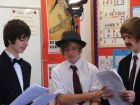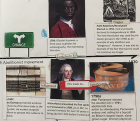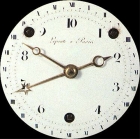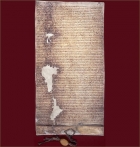Narrative in history
History teachers, academics and policy makers have often expressed concerns about the value accorded to narrative in school history, suggesting that an over-emphasis on certain concepts and processes – most obviously, causation and the critical evaluation of sources – has tended to obscure the importance of being able to put together a clear story. Constructing an effective narrative account, it has been argued, is not only an essential and demanding task in its own right and one that is fundamental to historians’ work; it is also the foundation on which other kinds of historical knowledge are built, and should therefore be more highly prized by teachers and within public examinations. Read more
Sort by:
Date (Newest first) | Title A-Z
Show:
All |
Articles |
Podcasts |
Multipage Articles
-

Stretching the straight jacket of assessment: use of role play and practical demonstration to enrich pupils' experience of history at GCSE and beyond
ArticleClick to view -

Teaching Year 9 to take on the challenge of structure in narrative
ArticleClick to view -

The History of Afro-Brazilian People
ArticleClick to view -

The Past, the Present and the Future of the Economic Crisis, through Greek Students’ Accounts of their History
ArticleClick to view -

The devil is the detail
ArticleClick to view -

Touching, feeling, smelling, and sensing history through objects
ArticleClick to view -

Transatlantic slavery – shaping the question, lengthening the narrative, broadening the meaning
ArticleClick to view -

Transforming historical understanding through scripted drama
ArticleClick to view -

Triumphs Show: Making their historical writing explode
ArticleClick to view -

Unravelling the complexity of the causes of British abolition with Year 8
ArticleClick to view -

Using historical discourse to find narrative coherence in the GCSE period study
ArticleClick to view -

Using narratives and big pictures to address the challenges of a 2-year KS3 curriculum
ArticleClick to view -

Using the concept of place to help Year 9 students to visualise the complexities of the Holocaust
ArticleClick to view -

Using this map and all your knowledge, become Bismarck
ArticleClick to view -

What kinds of feedback help students produce better historical narratives of the interwar years?
ArticleClick to view -

What’s in a narrative? Unpicking Year 9 narratives of change in Stalin’s Russia
ArticleClick to view -

Why are you wearing a watch? Complicating narratives of economic and social progress
ArticleClick to view -

Working with sources: scepticism or cynicism? Putting the story back together again
ArticleClick to view -

Year 7 use oral traditions to make claims about the rise and fall of the Inka empire
ArticleClick to view -

Year 9 - Connecting past, present and future
ArticleClick to view

